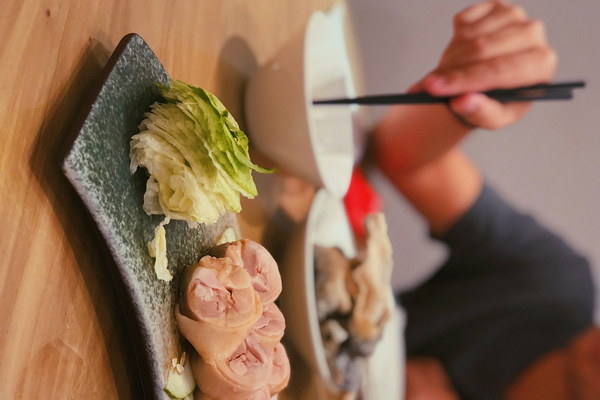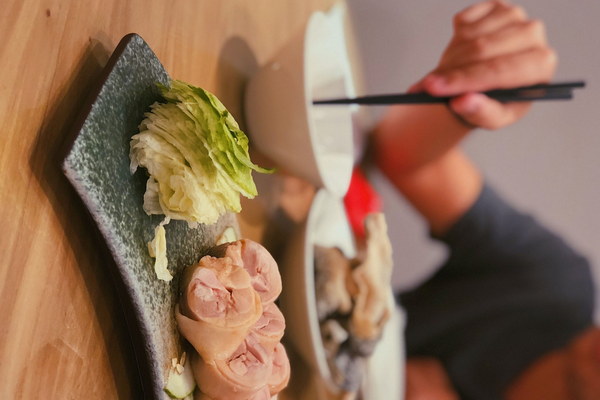Nurturing Your Body and Hair A Guide to Traditional Chinese Herbs for Hair Growth and Health
In the realm of natural remedies, traditional Chinese medicine (TCM) has long been revered for its holistic approach to health and beauty. Among its many benefits, TCM offers a range of herbal remedies that can promote hair growth and improve overall hair health. By addressing the root causes of hair loss and thinning, these natural remedies can help you achieve a lustrous, full head of hair. This article explores the world of TCM and its potent herbs for hair growth and health.
Understanding Traditional Chinese Medicine
Traditional Chinese medicine is based on the belief that the body is an intricate network of interconnected systems that must be in balance to maintain optimal health. TCM practitioners use a combination of herbal remedies, acupuncture, and other therapies to address the root causes of illness and promote overall well-being.
Herbs for Hair Growth and Health
1. He Shou Wu (Polygonum multiflorum):
He Shou Wu is one of the most famous Chinese herbs for hair growth. This herb is believed to nourish the kidneys, which are considered the root of hair growth in TCM. He Shou Wu contains antioxidants and nutrients that promote hair follicle health, resulting in thicker, healthier hair.
2. Fo-Ti (Polygonum multiflorum):
Fo-Ti is another member of the Polygonum multiflorum family, similar to He Shou Wu. It is known for its ability to nourish the kidneys, improve circulation, and promote hair growth. Fo-Ti is often used in conjunction with other herbs to enhance its effects.
3. Peony Root (Paeonia lactiflora):
Peony root is a well-known herb in TCM for its ability to nourish the liver and kidneys. It helps to regulate hormones and improve blood circulation, which can promote hair growth. Peony root is often used to treat hair loss caused by stress, hormonal imbalances, or other health issues.
4. Coptis Root (Coptis chinensis):
Coptis root is a powerful herb with antibacterial and antifungal properties. It is often used to treat scalp conditions, such as dandruff and psoriasis, which can lead to hair loss. Coptis root can also help to stimulate hair growth by promoting a healthy scalp environment.
5. Safflower (Carthamus tinctorius):
Safflower is a blood-moving herb that improves circulation and reduces blood stagnation. This can help to promote hair growth by ensuring that the hair follicles receive adequate nutrients and oxygen. Safflower is often used in combination with other herbs to enhance its effects.
6. Saw Palmetto (Serenoa repens):
Saw palmetto is a popular herb in Western herbal medicine, and it is also used in TCM for hair growth. This herb helps to block the conversion of testosterone to dihydrotestosterone (DHT), a hormone that can lead to hair loss. Saw palmetto can be used alone or in combination with other herbs to promote hair growth.
How to Use Traditional Chinese Herbs for Hair Growth

To use traditional Chinese herbs for hair growth, you can consult a TCM practitioner or purchase pre-formulated herbal remedies. Here are a few suggestions on how to incorporate these herbs into your hair care routine:
- Herbal Teas: Brew a cup of herbal tea with He Shou Wu, Fo-Ti, and Peony Root to promote hair growth and overall health.
- Herbal Powders: Mix herbal powders like Coptis Root and Safflower with water or a carrier oil to create a hair mask that promotes hair growth and scalp health.
- Herbal Supplements: Take herbal supplements containing ingredients like Saw Palmetto and Safflower to support hair growth from the inside out.
Conclusion
Traditional Chinese medicine offers a wealth of natural remedies for hair growth and health. By incorporating these potent herbs into your routine, you can address the root causes of hair loss and achieve a lustrous, full head of hair. Remember to consult a TCM practitioner or healthcare provider before starting any new herbal treatment to ensure safety and effectiveness.









